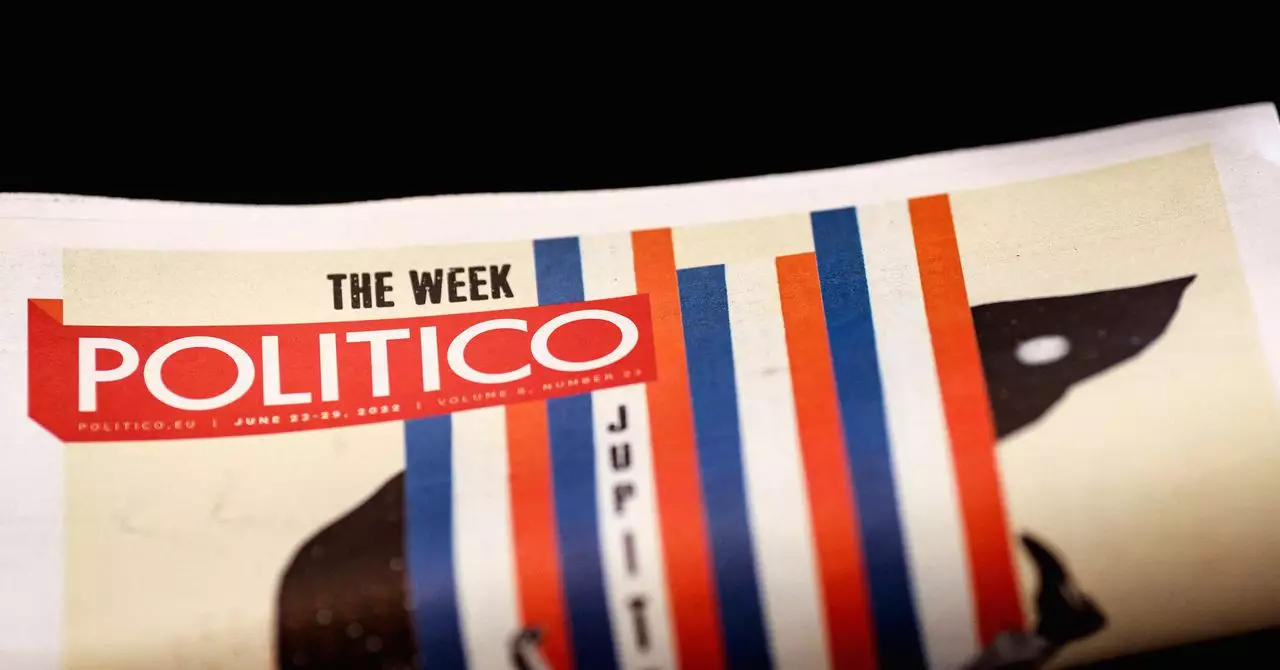In the ever-evolving landscape of journalism, Politico has emerged as a vanguard. Last year, it managed to secure a significant milestone by being one of the first newsrooms to formalize rules regarding the deployment of artificial intelligence (AI) through a union contract. This development is not merely a bureaucratic triumph; it reflects a broader struggle for the integrity of journalistic work in the age of technology. However, the calm following this victory is now disrupted by allegations from the PEN Guild, the union representing Politico’s journalists, suggesting that the promised protections may have been compromised. As the union prepares to embark on a critical legal journey, the implications of this dispute could echo throughout the media industry and define the relationship between journalists and AI.
The AI Revolution vs. Journalistic Integrity
The integration of AI into newsrooms has raised eyebrows and questions regarding the essence of journalistic ethics. Politico’s introduction of live AI-generated summaries during momentous political events, such as the Democratic National Convention and vice presidential debates, was heralded as a groundbreaking approach to news delivery. However, this innovation is now being scrutinized for potentially undermining the work of human journalists. The core of the problem lies in the alleged violation of the union contract regarding the implementation of AI tools.
The PEN Guild argues that Politico bypassed essential protocols by failing to inform union members about the material impact of these new technologies on their roles. The lack of a consultation period not only raises concerns about job security but also highlights the need for a clear ethical framework when adapting to advancements in technology. Activists within the union insist this is more than a simple contract breach; it symbolizes a fight for the rights of journalists to dictate the terms of AI’s involvement in their work.
A Precedent in the Making
As the union escalates the situation to arbitration, the precedent being set is monumental. This case could serve as a touchstone for future negotiations between media companies and their employees. Newsguild president Jon Schleuss emphasized that, in the absence of comprehensive federal regulations governing AI, union contracts are one of the few mechanisms available to ensure that the deployment of such technologies remains accountable.
The stakes are high. If the outcome favors the union, it could lead to enhanced protections for journalists in other newsrooms across the nation, establishing clear guidelines for how AI tools can be integrated into reporting practices. Conversely, if the management prevails, it may pave the way for a more pronounced marginalization of journalistic input in an era increasingly dominated by algorithms and automated content generation.
The Ethical Dilemma
Amidst this technological frenzy, questions about ethics abound. The trustworthiness of news content generated by AI is at the heart of the discussion. Politico’s own contract mandates adherence to established journalistic standards, yet incidents have surfaced indicating discrepancies. In one alarming example, machine-generated summaries included language that human reporters were prohibited from using, creating inconsistencies in the narrative being presented to the audience.
Arianna Skibell, the union’s vice chair, voiced concern over the human oversight—or lack thereof—over AI-generated content. The integration of factually inaccurate statements not only jeopardizes the integrity of the publication but also risks polarizing audiences further. Instances where AI wrongly attributed actions to political figures highlight the precarious balance between speed and accuracy in news delivery. If AI was truly to augment journalistic efforts, robust checks and balances must be implemented.
The Road Ahead
As the arbitration process nears, the future of journalism as it intertwines with AI remains cloaked in uncertainty. This moment in time serves as a critical juncture, where the destiny of journalism could very well hinge on the outcome of this dispute. The challenges faced by Politico are indicative of broader industry dilemmas. Resistance from journalists toward unbridled technological advancements is not merely a traditionalist stance but a necessary push for accountability and ethical governance.
The unfolding drama at Politico highlights the importance of maintaining a human element in journalism. While AI can undoubtedly streamline processes and provide efficiencies, it must coexist with the rigor of human expertise and ethical oversight. The pressing need for a comprehensive discourse about AI use in newsrooms calls for increased collaboration between technology and journalism, where the latter is not eclipsed but empowered. As this crucial battle unfolds, one thing is clear: the ultimate goal should be fostering a symbiotic relationship that prioritizes the sanctity of truth and the role of journalists as the vital custodians of information.


Leave a Reply